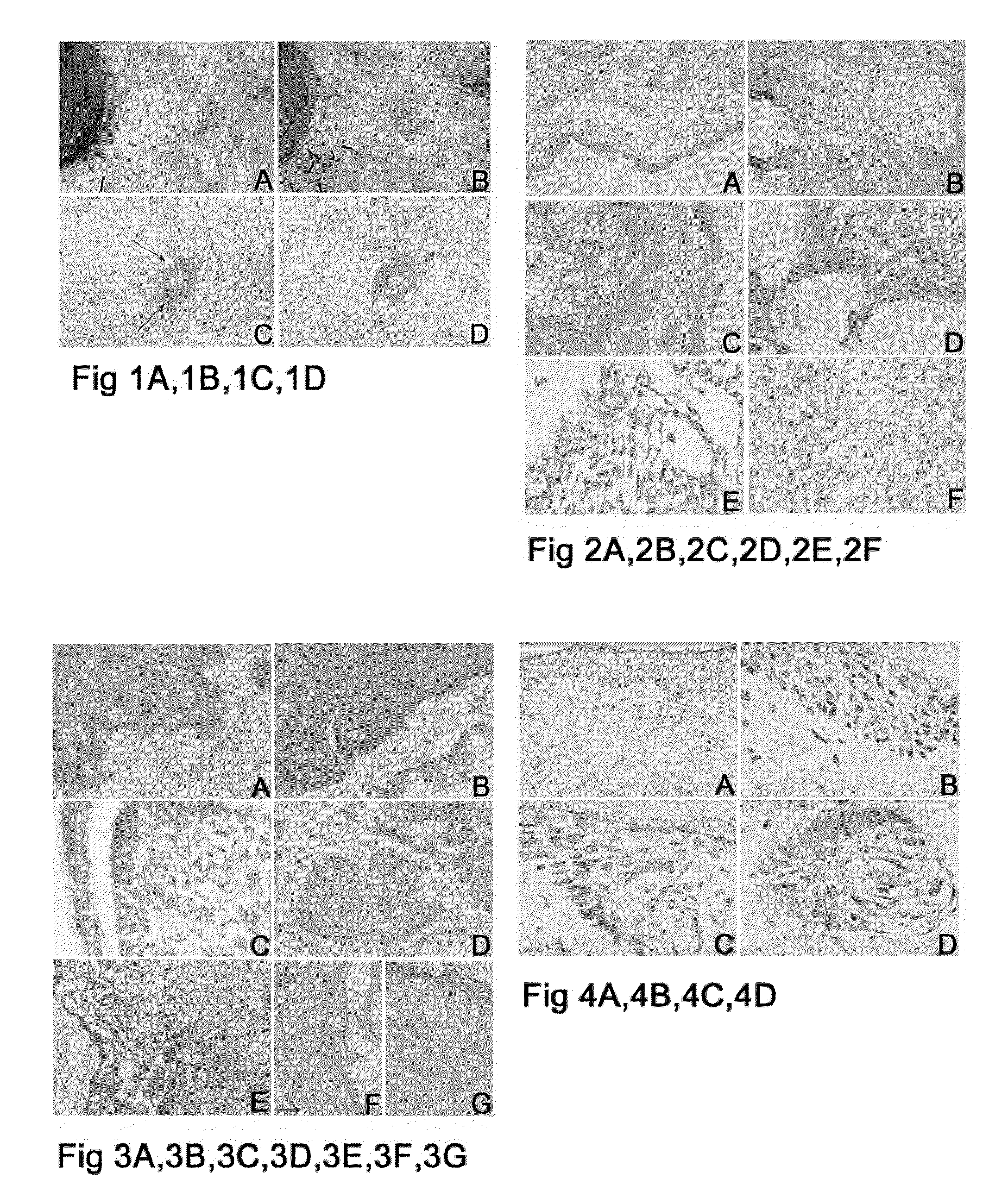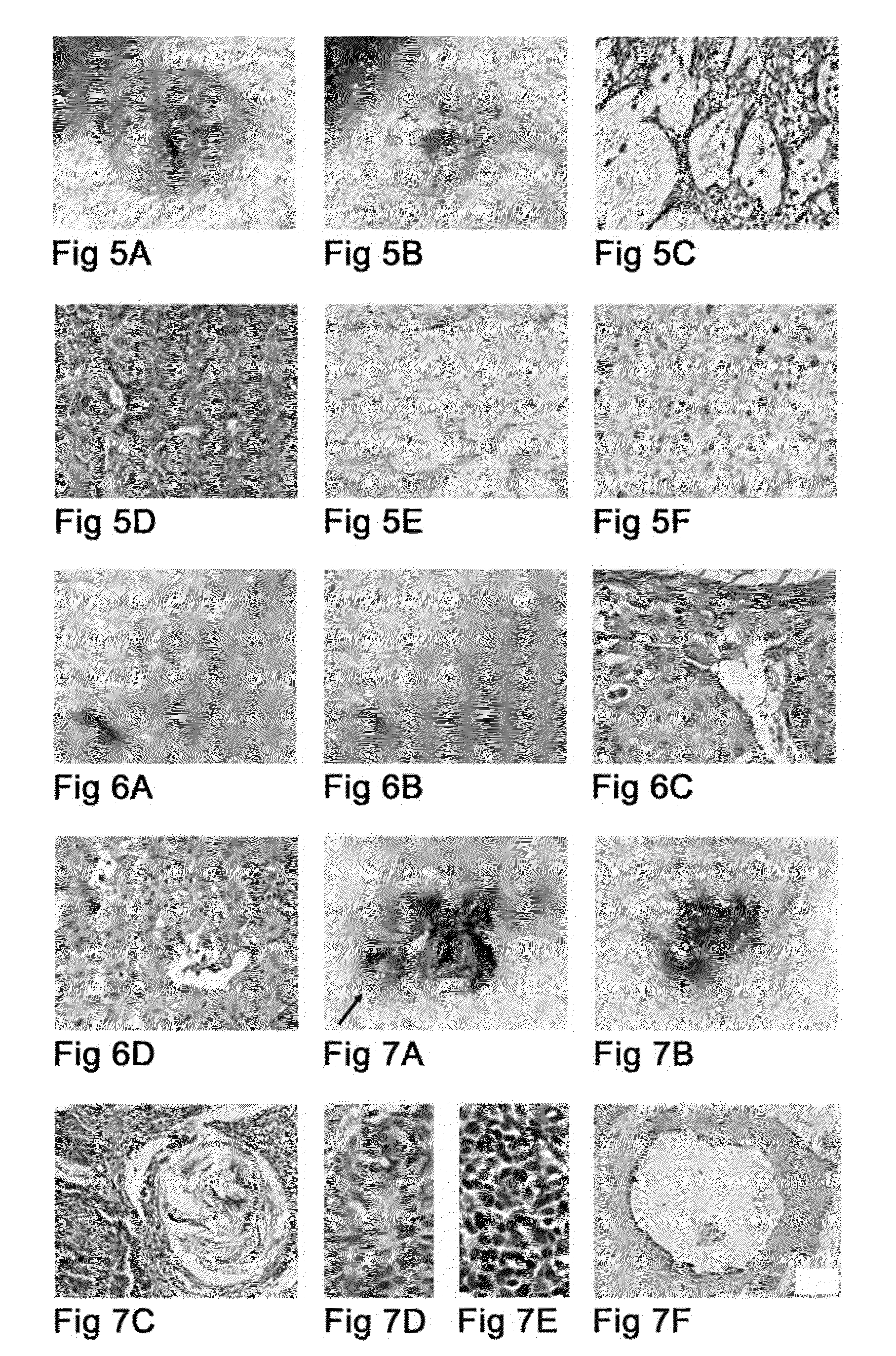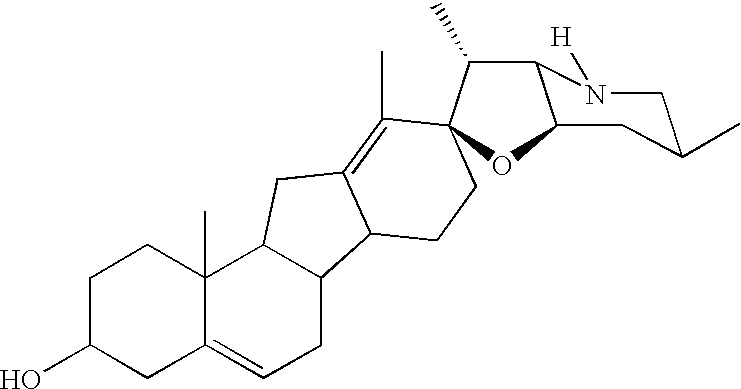Use of cyclopamine in the treatment of basal cell carcinoma and other tumors
a basal cell carcinoma and cyclopamine technology, applied in the direction of heterocyclic compound active ingredients, drug compositions, biocide, etc., can solve the problems of dna damage in the normal cells of patients, apoptosis of tumor cells, and high toxicity of cyclopamine, so as to prevent apoptosis
- Summary
- Abstract
- Description
- Claims
- Application Information
AI Technical Summary
Benefits of technology
Problems solved by technology
Method used
Image
Examples
Embodiment Construction
[0033]Cyclopamine was discovered as a teratogenic compound of Veratrum plants (Keeler R. F. (1969) Phytochemistry 8:223-225). It has been reported to inhibit differentiation of the precursors of the ventral cells in the developing brain (Incardona J. P. et al (1998) Development 125:3553-3562; Cooper M. K. et al. (1998) Science 280:1603-1607). Inhibition of cellular differentiation by cyclopamine has been reported in other systems as well, including the differentiation of bone marrow cells to erythroid cells (Detmer K. et al (2000) Dev. Biol. 222-242) and the differentiation of urogenital sinus to prostate (Berman D. M. et al (2000) J. Urol. 163-204). However, the opposite was found to be true in this invention with the tumor cells exposed to cyclopamine. Along with the cyclopamine-induced differentiation of tumor cells, apoptosis of tumor cells was also induced. Induction of tumor cell apoptosis by cyclopamine, again previously undescribed, is shown to be highly efficient. Furthermo...
PUM
 Login to View More
Login to View More Abstract
Description
Claims
Application Information
 Login to View More
Login to View More - R&D
- Intellectual Property
- Life Sciences
- Materials
- Tech Scout
- Unparalleled Data Quality
- Higher Quality Content
- 60% Fewer Hallucinations
Browse by: Latest US Patents, China's latest patents, Technical Efficacy Thesaurus, Application Domain, Technology Topic, Popular Technical Reports.
© 2025 PatSnap. All rights reserved.Legal|Privacy policy|Modern Slavery Act Transparency Statement|Sitemap|About US| Contact US: help@patsnap.com



